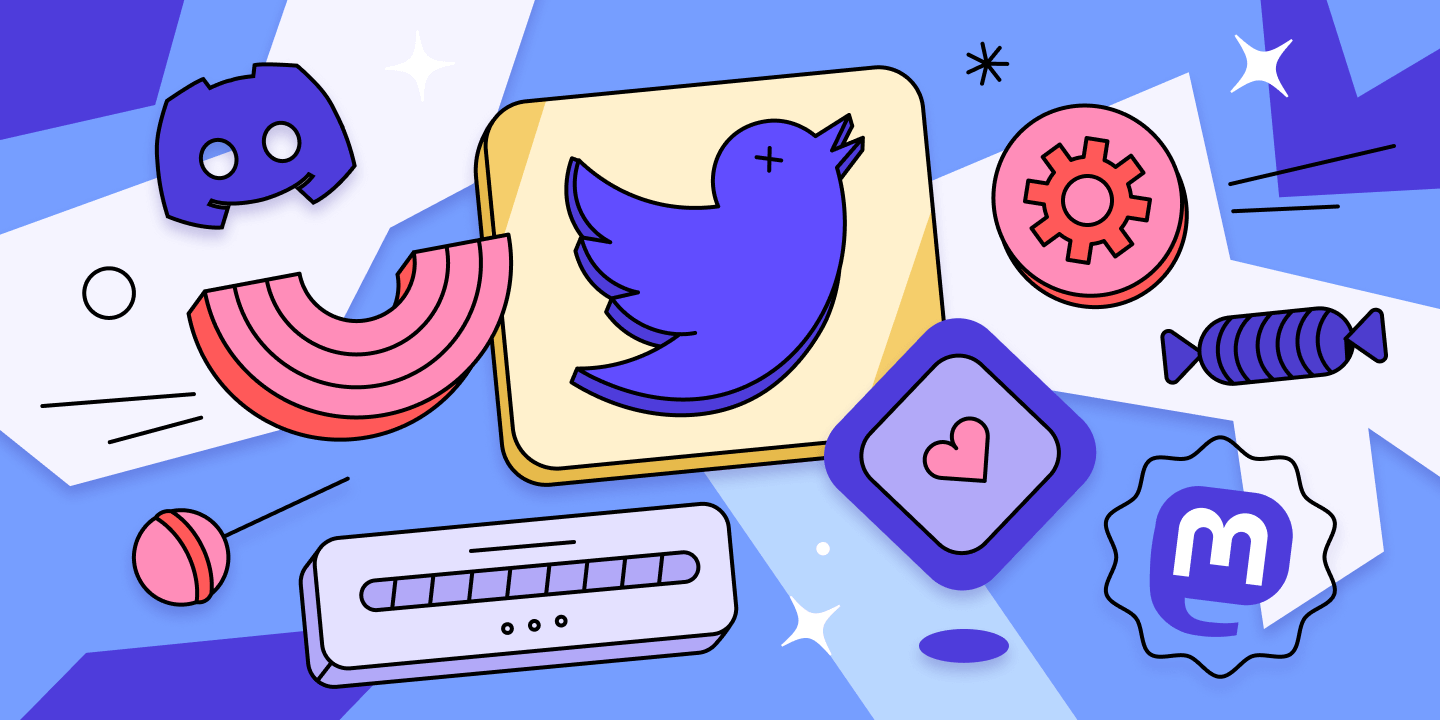You've probably noticed that Twitter (or X) has been on a bit of a downward spiral for the past year or so. Since its takeover and rebranding, Twitter has lost 13% of its daily active users, with new ones leaving each day. So is Twitter finally dead?
For PR professionals, this is a major change as many of the journalists, influencers and content creators they work with are also leaving X for other alternatives.
One thing remains the same: whether you're using Twitter or not, you can monitor the social media platforms of your choice with Prowly.
So, what are these alternatives and are they worth your time? Let's find out.
- Why are people leaving Twitter?
- The best Twitter alternatives for PRs
- Discord and Reddit vs Twitter
- Social media communities as an alternative
- Why is it so hard to find a Twitter alternative?
- Should you ditch Twitter?
Why are people leaving Twitter (X)?
Ever since its acquisition by Tesla owner Elon Musk, things have, let’s say, not been going that great.
In October 2022, Musk purchased Twitter for $44 billion and made earthshaking changes in the company structure, which was the beginning of the end for many users.
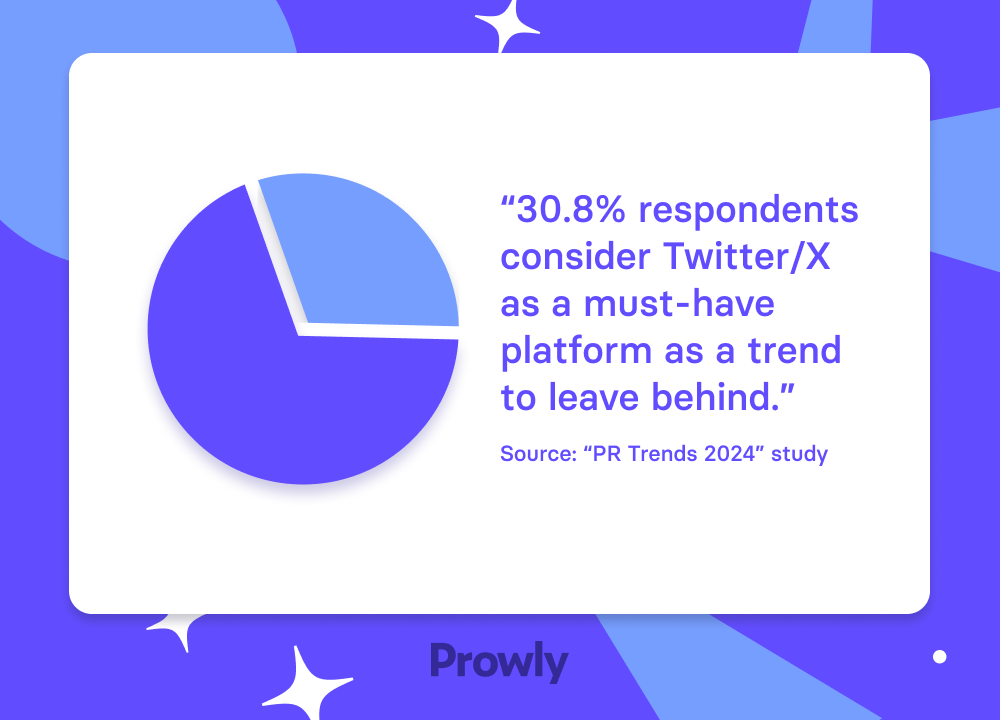
What happened to Twitter (X)?
- One month after the (in)famous Twitter purchase, in November 2022, Twitter laid off half of its staff. In that same month, Twitter introduced blue checkmarks for verified accounts for which users had to pay $8 per month.
- Also in November, Musk lifted the previously established ban on Donald Trump. This was followed by a sitewide ban lift for all previously banned accounts. This makes many users wonder if Twitter is safe for left-wing users and journalists.
- Speaking of which, Twitter banned a number of journalists in December 2022. Journalists from The Washington Post, New York Times and CNN. Musk banned them based on accusations of endangering his family by reporting on a Twitter account that tracked his private jet.
- In July 2023, Twitter rebranded to X, taking x.com as its domain. Many users were left wondering (even to this day) "what are tweets called now?" with most still defaulting to ‘Twitter’ as the go-to name rather than using ‘X’.
All of this led to an increased distrust in Twitter as a platform for journalists.
Without guaranteed freedom of speech and expression, many journalists fled to Twitter alternatives, including the social media platforms below:
The best Twitter alternatives for PRs
#1 Threads
Launched in July 2023 by Meta, this is Mark Zuckerberg's response to Twitter. It's designed to be a text-based conversational app that supplements Instagram. It took this platform just over four days to get to over 100 million users.
👉🏼 What’s the difference between Twitter and Threads?
Threads is different from Twitter in many ways. It does not support hashtags and you cannot DM other accounts. There is a larger character limit (compared to the free version of X), and your Threads account is closely tied to your Instagram. That means it's for Instagram users only for now. Currently, it's also ad-free, unlike other Meta social media apps.
Given its limitations and a much smaller number of users compared to Twitter, it may not be worth getting active on Threads to find new journalists. And since there are no DMs, you can only use another platform to reach out to them.
⛔️ Plus a thing to keep in mind: It’s owned by Meta, so if you would ever have your Instagram profile deleted by Meta, it will remove your Threads account as well. So keep this in mind when you post content on Threads and consider investing more time into this platform. Diversifying your presence in channels you don’t own seems like a safer bet.
#2 Mastodon
Mastodon is a decentralized, open-source social media platform that has been slowly growing in popularity in recent months.
The biggest difference is that within Mastodon, you can set up your own nodes and create rules of conduct, essentially creating online communities within a community. Launched in 2016 by Eugen Rochko, it's a great choice for users who value freedom of expression.
👉🏼 What’s the difference between Mastodon and Twitter?
The first major difference is that Twitter is centralized, which means that the platform is owned and controlled by Twitter.
Unlike other social media platforms, Mastodon is open-source, allowing anyone to create their own community. Mastodon is free and open-source, and does not collect data or sell ad space to other businesses. It takes pride in being a decentralized social network.
If you want to find journalists and content creators on Mastodon, you just have to find the right instances. And thanks to the freedom of expression and moderation, there are a good number of journalists spending time there.
#3 Bluesky Social
Launched by former Twitter CEO Jack Dorsey, Bluesky is a decentralized social app which was developed alongside Twitter. Ever since Twitter started launching its not-so-popular changes and features, Bluesky has been increasing in popularity. At the moment of this publication, there are over two million Bluesky Social users.
The only downside is that it's an invite-only community, so you have to know someone already online in order to get in.
👉🏼 What’s the difference between Bluesky and Twitter?
We already mentioned the first - Bluesky is invite only, while anyone can join Twitter. Also, like Mastodon, Bluesky is decentralized, which means that in the future users will be able to create their own moderated communities.
At the moment of this publication, Bluesky also does not offer the option of sending DMs or adding accounts to lists.
#4 Spill
Spill is a visual conversation network where users can share images and GIFs with each other. It was launched in June 2023 by two former Twitter employees, Alphonzo Terrel and Devaris Brown.
At the moment of this publication, it's available to iPhone users only and you can only get an account if someone sends you an invite.
👉🏼 What’s the difference between Spill and Twitter?
The main difference is that Spill is based on image sharing, and it allows for only 90 characters of text. This led to many people calling it a new Tumblr, rather than a Twitter alternative. It's also invite-only and limited to a single device type.
#5 Counter Social
Launched by a hacker who goes by the name, The Jester, this social media platform is a Twitter alternative that promises no trolls or fake news. This is just one of the many reasons why it grew to a user base of allegedly 63 million people.
Countersocial does not have ads and it sustains itself with donations made by its users.
👉🏼 What’s the difference between Counter Social and Twitter?
You can create posts of up to 500 characters in length. They are arranged chronologically as you open the app, providing a cleaner look. The platform has a strict policy against fake news and trolls.
This means that even signing up from countries such as China, Pakistan and Russia is impossible, which is kind of ironic for a platform claiming to be a refuge from Twitter.
#6 Tribel Social
Created in November 2022, Tribel Social is a popular alternative to Twitter with over 600,000 users at the time of this publication. It is conceptualized as a more left-leaning version of Twitter with a better set of features and a user experience that both users and businesses will love.
👉🏼 What’s the difference between Tribel Social and Twitter?
In Tribel Social, you can curate the content you see on your feed by selecting the topics you are interested in. Every time you post, you can choose which audience gets to see the post you're publishing.
For businesses, Tribel Social offers gamification tools such as polls as well as the option to take a deep dive into post analytics. Speaking of which, there is a Google Analytics integration available.
#7 Cohost
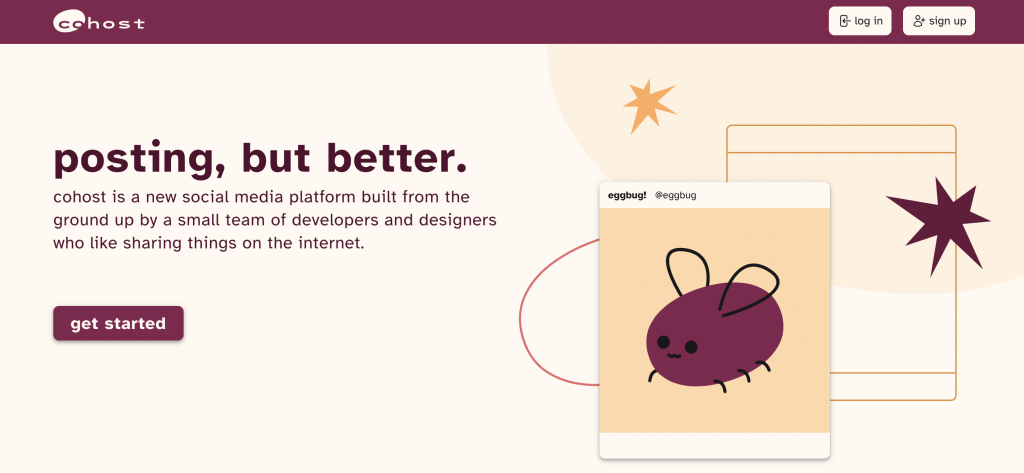
Rolled out in February 2022, Cohost is the creation of Colin Bayer and Jae Kaplan, who wanted to see a better alternative to Twitter and Facebook. If you like features such as retweets, hashtags and comments, you'll feel right at home, despite the vastly different interface.
👉🏼 What’s the difference between Cohost Social and Twitter?
There is no character limit and you can make multiple pages for the content you want to publish. There is also an option for creating collaborative content with other users. Posts are listed chronologically and there is no algorithm for ranking content on your feed. Also, the feed is vertical.
To help you find out if relevant reporters are talking about your clients' brands on Twitter (and Instagram, Facebook, and other places), use Prowly's social media monitoring tool. Simply set up your desired keywords, platforms, and topics, and watch the mentions roll in (or see our social listening guide for detailed instructions).
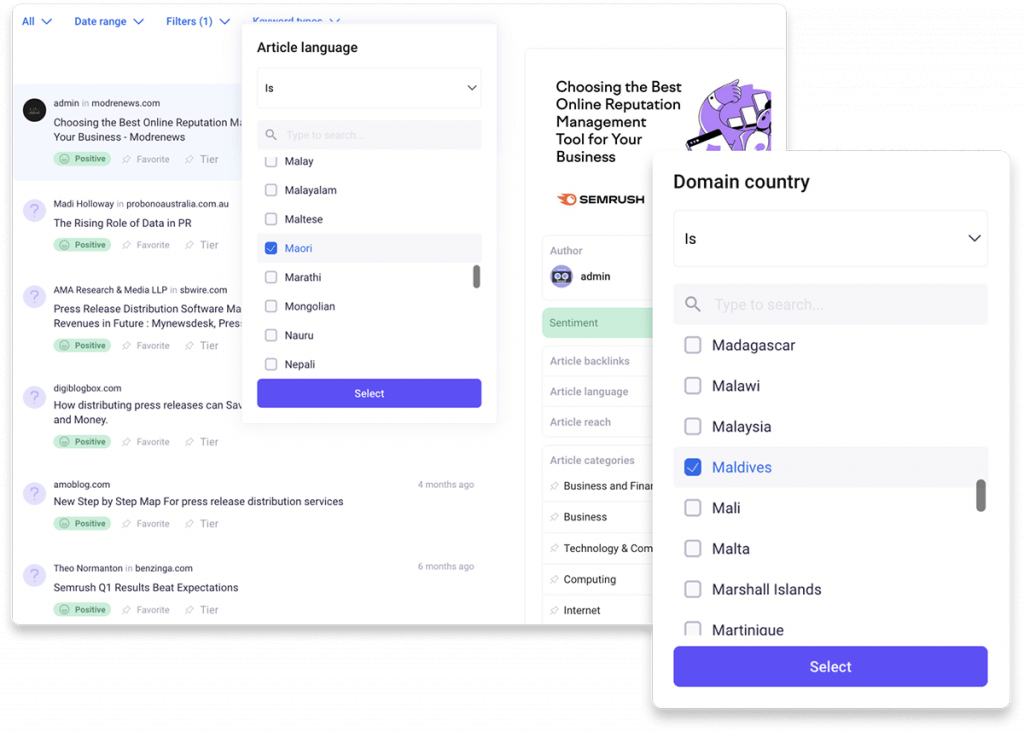
If you're currently using Google Alerts but considering switching to more advanced media monitoring, read this comparison of the best alternatives out there.
Discord and Reddit vs. Twitter
Considering these two social media platforms as the best Twitter alternatives? Let's take a closer look at them.
What’s the difference between Discord and Twitter?
Discord is a platform used predominantly by gamers and streamers, and it currently has over 560 million users. Unlike Twitter, it is divided into servers, where each user can create their own server and moderate it. You can have private and public Discord channels of various sizes.
👉🏼 The key difference between Discord and Twitter is not just in the target audience.
Discord is made for discussion between members, while Twitter is for those who want to build a following.
As a PR professional, Discord should not be high on your list of priorities in terms of networks to participate in.
What’s the difference between Reddit and Twitter?
Reddit is a social media platform that is known for its strict policy against all forms of promotion. It currently has over 430 million active users, which is actually more than Twitter at the moment of writing.
👉🏼 Aside from the number of users, the main difference is in focus.
Twitter is predominantly used by real people and celebrities who stand behind their accounts. Meanwhile, Reddit is more anonymous, with rare occasions of users publicly giving up their identity.
👉🏼 Also, Twitter is much shorter in terms of format, focusing on bite-sized information.
Reddit, on the other hand, has lengthy, detailed discussions.
As a PR pro, you should definitely delve into relevant subreddits on Reddit to find journalists and content creators interested in your industry and niche. However, be mindful of Reddit's strict rules on self-promotion.
And if you want to monitor what is happening on Reddit and other platforms in real-time, check the best social listening tools out there. With the right media monitoring tool, you can track brands, terms and people and get reports about your tracked keywords.
Social media communities as an alternative
If apps like X are not your cup of tea, you may want to tap into communities as Twitter alternatives to get in touch with media professionals. Here are a few we can recommend.
From PR people to PR people
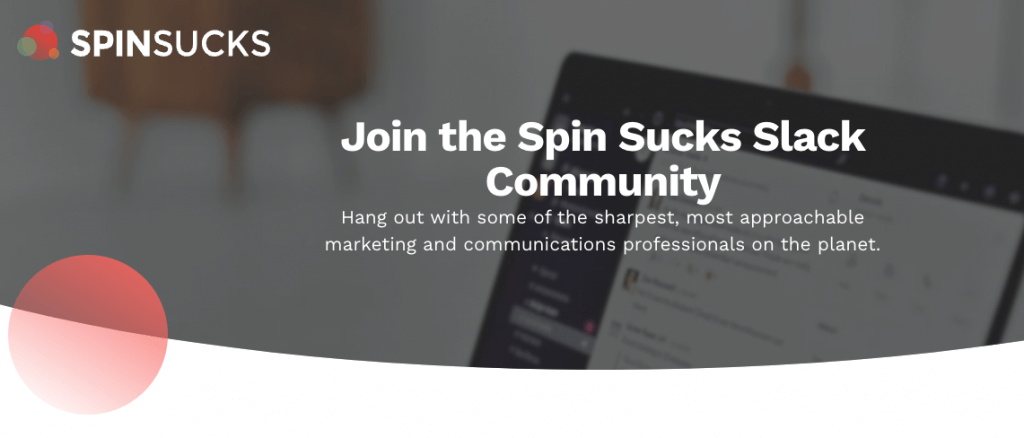
Spinsucks is home of the PESO model, as well as a website with lots of educational content on PR and marketing. They also have a Slack community with media professionals, marketers, strategists and other people you need in your list of contacts. It's free to enter but you have to apply to get in.
👉🏼 Powerhouse Pros by Jen Berson on Facebook

With 5,000+ members and counting, this is one of the largest communities of digital agency professionals online. You're likely to find journalists as well as peers you can ask for recommendations and tips.
Where journalists are:
- LinkedIn for Journalists - with over 130,000 members, this is the place to go if you want journalism-related events, job opportunities and general journo topics.
- Media Voices - a free community where anyone can sign up to discuss the challenges of working in the media industry.
- Slack: News Products Alliance - a free Slack community with over 2,000 journalists, media professionals, data scientists, and others looking to hone their skills and learn.
- JournalismAI Connect - a community run by the London School of Economics and Political Science, open to anyone who wants to discuss the ethical use of AI in journalism.
❗️Remember: Even if you decide to resign from using your Twitter (X) account, don't exclude this platform from your media monitoring list.
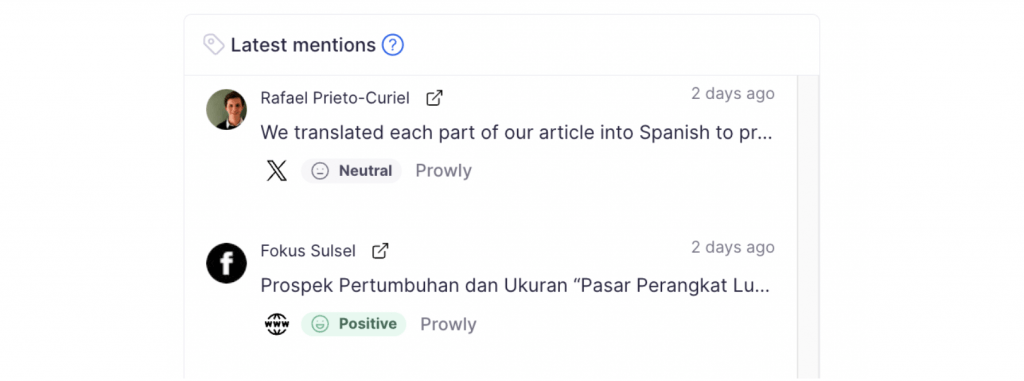
You might not be active there anymore, but people may still talk positively or negatively about your brand.
Why is it so hard to find a Twitter alternative?
1️⃣ The influencers - even if journalists are leaving Twitter in droves, influencers with large follower bases remain, as they benefit from the exposure.
2️⃣ Integrated communications campaigns - if you're building out larger campaigns for getting in touch with relevant media professionals, Twitter can't be ignored as a part of that mix.
3️⃣ Direct connection to the media - if a reporter is not responding on their phone or they're ignoring your emails, you might hop onto Twitter and see that they're quite active there. They could be using it to find sources or talk about certain topics, which makes this a good platform for reaching out.
Should you ditch Twitter?
TL;DR: Even if you're considering new social media platforms, you should probably keep your Twitter account. You can use it as a backup while exploring Twitter competitors.
Before removing Twitter from your PR tool stack altogether, consider the following:
👉🏼 How invested you currently are in Twitter.
How much time have you spent on the platform already? What kind of journalist connections have you built over time? Is your audience still active and engaging with you? If the answers are overwhelmingly positive, you should keep your Twitter account.
👉🏼 The presence of media representatives and journalists.
In your specific field, journalists may still be very active on Twitter. Or maybe they have moved to another Twitter alternative. Depending on their presence, you could either stay or follow their trail.
👉🏼 Your social media standards.
Twitter's recent changes in moderation, policies on hate speech, and the reinstatement of some accounts have been too much for some companies. If all of this is too much for your PR agency, you could pack up and leave too.
👉🏼 Your capacity for social media coverage.
If you want to stick around on Twitter, do you have the time and resources to manage it alongside the new Twitter alternatives that journalists and media professionals are using? If you don't have the people or resources in-house, you could leave Twitter or put it on pause.
This is something you definitely shouldn't miss out on
No matter if you're using Twitter or not, don't neglect media mentions.
Use social media monitoring, so that no mention can catch you by surprise, regardless of its source.
